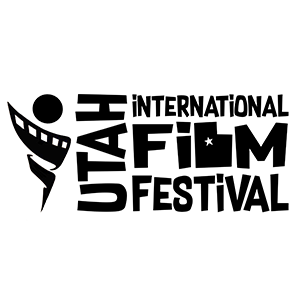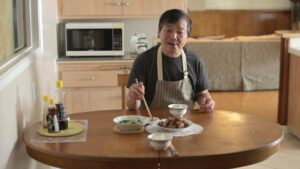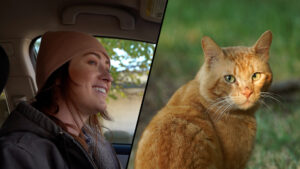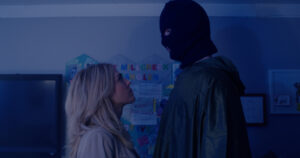Animal
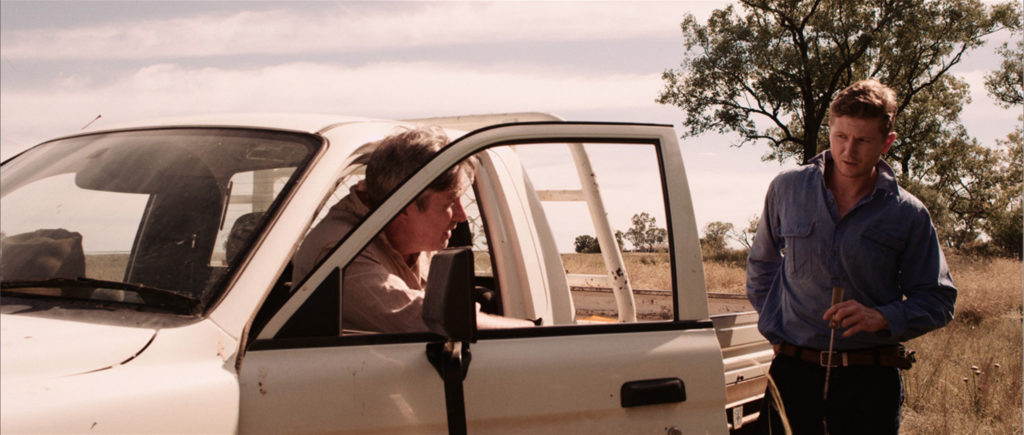
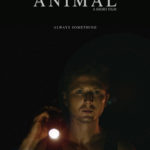

Animal is a scenic short shot with the emotions and smells of the Australian landscape in the viewer’s mind throughout the film. Written and directed by talented Henry Young, one can’t help but feel the desolation from humanity this aging ranch hand and his son are up against on a daily basis., until they meet the devastating animal they must join forces to combat.
At the break of dawn, we see the two men working steadily in gathering up coils of worn out fence from the fields and loading it into the back of an old work truck. The older father loads in one coil and leans against the truck to tell the story of the ongoing and never ending battle of hard work to keep the fields well groomed. He tells his son that no matter how much work gets done, there’s always more waiting. And then he turns the keys and command over to his son and climbs in the passenger side of the truck, waiting to ride.
Later in the day, with the sun high in the sky and the dry grass rusting beneath their feet, the father suggests the son tend to the fence. He says he intends on going down to check the gully. When the son claims he can do it, his father shoos him away claiming he can check it on his own. He takes a wrench and heads down the way. The son treks off to tend to his own chores.
After spending a great amount of time working by himself, the son grows concerned that his father hasn’t returned. Finishing up his chores, he sets out to find his father. Retreating to where he last left him, his son grows concerned and calls him. Out from behind a tree, his father appears, claiming to have fallen but states he’s fine. Then he announces it’s time for lunch.
Inside the cabin, the elder rancher hands his son his food and then sits across from him, leisurely tilting back in his chair as he rambles about all the work they need to get done today, including feeding the cattle. Before he’s even finished, his son jolts up, throws the grain into the truck. His father invites him to sit down, but he declines, taking off in the truck before his father can make it to the door.
That night, when the son returns home after working all day, his father waits on the porch with a few empty beer bottles beside him. He asks his son to grab him another while he’s in there. When his son hands him a beer, he asks for the keys back. Visibly, the keys are indicative of who’s in charge. When he asks his son how it went out in the fields, he’s told they lost one. His father expresses it’s best to look the other way when that happens because they must let nature takes its course. His son doesn’t appear satisfied with the lackadaisical response declaring, “You raised me.” His father stands and tells his son to take care of the bottles as he heads inside.
A bit later, something urges the son to jump into the truck and have a look for himself. He finds a cattle skull and a pack of wild wolves with their eyes gleaming in the darkness, symbolizing something treacherously wild is on the prowl.
As the son recalls the wolves the night before, his father relays that he plans on getting the bikes and junior can move the cattle. The son states he’ll be faster than his father in doing his chores.
At sundown, the son waits for his father who meanders over the rise toward him. “What happened?” he asked his father, who replied he rolled the four-wheeler coming over the gully. The father panics when the son bolts toward where he came from telling him they can get them tomorrow. Losing his patience, the son screams about how useless his father is. His father tells him to repeat it, and then clocks his son, who comes back angrier and stronger than his father. The animal has been found as he repeatedly kicks his father on the ground.
In the end, realizing what he’s done, he helps his injured father into the truck.
This film was nicely put together with the scenery of the wide-open sky; the few, but carefully chosen words, and the meaning coming through the emotions of both actors. Each of them emitting a familiarity for each of us.
